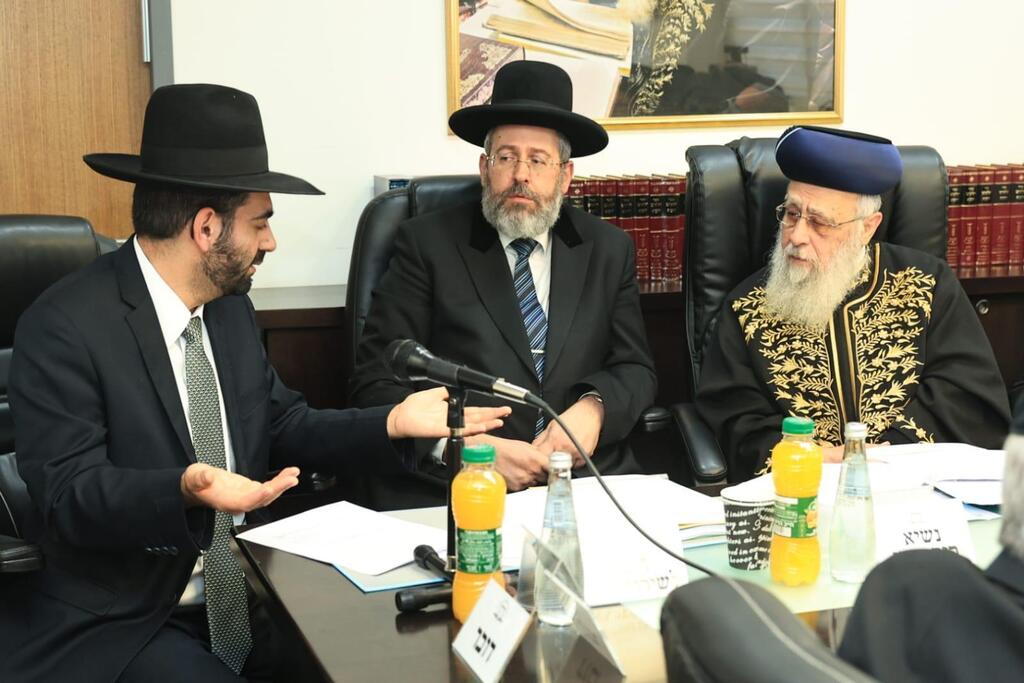Getting your Trinity Audio player ready...
The tenure of Chief Rabbis Yitzhak Yosef and David Lau concluded on Sunday. Temporary replacements have already assumed their positions, but a date for electing the new chief rabbis has yet to be set.
The chief rabbis, who are supposed to serve a 10-year term, are to be chosen in a secret ballot by an assembly of 150 representatives, comprising rabbis and public figures. Twenty of these representatives are selected by the Minister of Religious Services and the outgoing chief rabbis themselves.
Rabbis Yosef and Lau were advised by the Attorney General to refrain from selecting representatives due to potential conflicts of interest, as their brothers are among the candidates for the prestigious positions. However, another representative from the Chief Rabbinate Council or the rabbinical courts could appoint representatives in their place.
Given that the majority of the voting body is male, with 80 representatives being city rabbis, community rabbis, and judges—all roles filled exclusively by men—the High Court of Justice instructed the chief rabbis to consider appointing women among their representatives to ensure significant female representation in the electoral assembly.
Who will be the next chief rabbis?
This directive has led the rabbis and their close associates, as well as the Ministry of Religious Services, to delay convening the electoral assembly, thus stalling the official election process.
"The fact that the chief rabbis are ending their tenure without duly elected successors highlights the irrelevance of the Chief Rabbinate to the Israeli public," Tani Frank, Director of the Center for Judaism and State at the Shalom Hartman Institute said. "Under a government where the ultra-Orthodox have unchecked control over religious services, the elections for the chief rabbis are delayed due to personal considerations, primarily securing jobs for the families of Lau, Yosef, and Deri. This clearly demonstrates that the rabbinate is merely a tool for political exploitation by the ultra-Orthodox politicians."
Meanwhile, the High Court is expected to address a petition filed by Professor Aviad Hacohen on behalf of the legal clinics at the Sha'arei Mishpat Academic Center, demanding that the elections for the Chief Rabbinate be held as scheduled. The legal date for the elections has already passed, as the law stipulates it should be held at least one month before the end of the incumbents' term, which ended earlier this week. The petitioners are requesting a ruling that "the failure to hold the elections for the Chief Rabbinate on the scheduled date constitutes a violation of the law and a blatant disregard for legal provisions, and therefore, the elections should be held as soon as possible."
The petition also requests that the court instruct the Chief Rabbinate's Election Committee to immediately publish the composition of the electoral assembly.
Rabbi Eliezer Igra, the most senior judge at the Great Rabbinical Court in Jerusalem and one of Israel's leading judges, who currently serves as the acting chief rabbi, has joined the petition as a friend of the court. He is also a candidate for the position of chief rabbi of Israel.
Rabbi Igra, who will turn 70 in August, will not be able to run for the position of chief rabbi if the elections are held after his birthday. Through his attorneys, he will request that "if the elections for the Chief Rabbinate are not held on time, his eligibility to be elected as chief rabbi should not be affected, as it was valid at the time the elections were supposed to take place."



